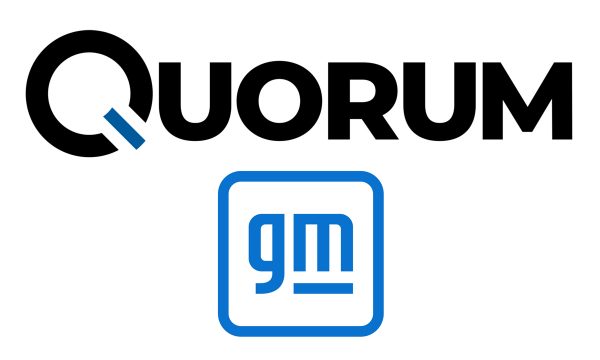 After declining for 18 of the past 19 months, Canadian auto sales held steady in November. Estimated sales of 143,666 new vehicles were down by just two vehicles from the same month in 2018, which put it in a virtual tie for fourth-best November ever.
After declining for 18 of the past 19 months, Canadian auto sales held steady in November. Estimated sales of 143,666 new vehicles were down by just two vehicles from the same month in 2018, which put it in a virtual tie for fourth-best November ever.
Year-to-date through November, however, cumulative sales of 1,805.266 units were down by 3.5% from the same period last year, according to estimates by DesRosiers Automotive Consultants (DAC).
“Sales results have been going in the right direction for the last two months,” said David Adams, President of Global Automakers of Canada, adding that “Consumer confidence is up, according to the Conference Board of Canada and that augurs well for continued vehicle sales.”
“It is almost certain at this point in time that the two-million unit mark is out of the question for 2019,” said Dennis DesRosiers of DAC. But 1.9-million-plus is well within reach. “This year will most likely still land within the top five selling years on record and, depending on December figures, should place it between 2016 and 2015 which are currently fourth and fifth respectively,” said DesRosiers.
The differential between passenger-car and light-truck and utility-vehicle sales accelerated in November with the former down by 18.6% and the latter up 6.9%. Year-to-date, light-truck sales accounted for 74.4% of the market, compared to 25.6% for passenger cars, a 3.7% increase in truck share from a year ago.
Ford leads the way
With the Detroit Three all reporting only quarterly now, their November sales were estimated by DAC.
On that basis, after ceding the top raking to General Motors in October, Ford regained that position in November with estimated sales of 20,867 new vehicles, a decrease of 1.7% from the same month last year. For the year-to-date, Ford’s estimated 273,738 sales, down 2.9% from 2018, were well clear of GM’s, virtually guaranteeing the Blue Oval’s first-place ranking for the year. Cumulatively, through November, Ford held 15.2% of the total market share, an improvement of 0.1% from a year ago.
General Motors’ estimated 18,291 November sales, down 5.2% from a year ago, were well behind Ford for the month, as was its 243,511-unit year-to-date total, now down 11.3% from last year at this time. As a result, GM’s market share has fallen by 1.2% to 13.5%.
As it has on occasion earlier this year, Toyota leap-frogged FCA into third place for the month with 16,808 vehicles sold, up just 0.1% from a year ago. Year-to-date Toyota’s 200,051 sales were up 3.4% from 2018, pushing its market share to 11.1% — a 0.8% gain that is the greatest in the industry.
Fiat Chrysler Automobiles fell to fourth place in sales for the month, in spite of making the greatest percentage gain of the Detroit Three. Its estimated sales of 13,697 units were up 10.8% from a difficult November, 2018. FCA’s estimated 208,233 year-to-date sales were down just 2.2% from last year but still ahead of the market average, bumping market share up by 0.1% to 11.5%.
Combined Detroit Three sales were even with last year for the month but down by 5.7% for the 11-month period, claiming 40.2% of all sales — a decline of 0.9% from a year ago.
Fifth-place Honda’s 11,605 November sales were down by 3.1% from the same month last year, dropping its 161,569-unit year-to-date total to 2.7% behind year-ago figures. That was still ahead of the market average, however, so Honda’s share improved 0.1% to 9.0%.
Hyundai and Kia maintain strength
Hyundai continued to show strength in sixth place with 10,582 sales in November, up 5.1% from the same month in 2018. Its 125,400 year-to-date sales were 3.6% ahead of this point last year, improving market share by 0.4% to 6.9%, the second-best improvement in the industry. behind Toyota.
Nissan, in seventh place, sold 9,258 units in November, a decline of 10.4% from a year ago. Year-to-date, Nissan’s 116,988 total sales were down by 8.6% from a year ago, cutting market-share by 0.3% to 6.5%.
After losing eighth place to Volkswagen last month, Kia rebounded with an 8.6% gain to 5,756 sales in November, pushing its year-to-date total to 72,139 units sold, an improvement of 5.0% and enough to maintain its eighth-place ranking. Correspondingly, Kia’s market share improved by 0.3%, to 4.0%.
Volkswagen dropped back to ninth place for November with a 5.3% decline to 5,535 units sold. The German brand maintained that position for the year-to-date with 64,682 sales, down 3.9 % from a year ago, also keeping market share steady at 3.6%.
Mazda, in 10th place, sold 5,308 new units in November, up 4.0% from the same month last year. Its cumulative sales for the year-to-date were down 10.2% from 2018, however, reducing market share by 0.2% to 3.5%.
In 11th place, Subaru’s 5,164 November sales were up 3.4% from a year ago, while its 52,853 year-to-date sales were down 2.7% from 2018, holding its market share steady at 2.9%.
Mercedes-Benz sold 4,165 new vehicles in November, up 9.7%, to maintaining 12th place overall and premium-brand leadership for the month and year-to-date. Audi surpassed BMW for second place in the premium rankings in November but BMW held that position for the year-to-date.
Winners and losers
The automakers were equally split with 13 gainers and 13 losers in November.
On a percentage basis, the greatest gainers were Volvo (+46.3%), Mitsubishi (+20.3%), Lexus (+17.3%), FCA (+10.8%), and Mercedes-Benz (+9.7%).
The biggest losers, in percentage terms, were Smart (-93.3%), Jaguar (-34.9%), Maserati (-32.5%), Mini (-29.7%), and Genesis (-21.1%).
It should be noted that the total market sales figures reported here are now estimated by DesRosiers Automotive Consultants (DAC), given that Fiat Chrysler Automobile, Ford and General Motors now report actual sales only on a quarterly basis. These estimated monthly results are reconciled quarterly by DAC to reflect actual sales when those companies report officially.











